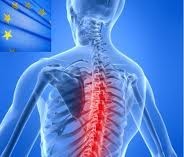Unlike for generic drugs, authorizing biosimilars without conducting quality clinical trials represents a real threat to patients, according to Professor Valderílio Feijó Azevedo, Professor of Rheumatology at the Universidade Federal do Paraná in Brazil [1].
The regulatory body for approval of medicines in Brazil is the Brazilian Health Surveillance Agency (Agência Nacional de Vigilância Sanitária, ANVISA). The agency published a guideline for the approval of ‘follow-on biological products’ as they are called in Brazil, Resolution no. 55/2010 [2]. The guideline is based on the World Health Organization guideline for similar biotherapeutic products [3], but differs in establishing two regulatory pathways for approval (individual and comparative), in the extrapolation of therapeutic indications and in differences in the emphasis given to the design and statistical considerations of the trials. However, as Professor Azevedo points out, the practical application of the latter has not yet been completely clarified by ANVISA.
Professor Azevedo states that ‘comparative randomized clinical trials are currently considered the best experimental design to assess treatment-related questions.’ Therefore, the use of statistical designs, such as the equivalence and non-inferiority approaches comparing follow-on biological products with controls, are necessary to ensure adequate efficacy and safety of follow-on biological products to any studied indication.
Equivalence studies ensure that a follow-on biological product is neither more nor less effective than a brand-name counterpart at the same dose and for the same route of administration.
Non-inferiority studies determine whether the follow-on biological product is at least as effective as its brand-name counterpart, or even a little less effective, but within a certain pre-established limit, that is within an acceptable range.
The need for ANVISA to evaluate follow-on biological products on a case-by-case basis was also raised by Professor Azevedo. For example, in the case of rheumatoid arthritis, only margins properly defined to detect significant differences between a certain anti-tumour necrosis factor biosimilar and its brand-name counterpart, based on the efficacy measured by the impact of both treatments on the ACR20 index (American College of Rheumatology 20% improvement criteria), could be accepted.
Professor Azevedo concludes that any margins used in studies of rheumatic disorders should also be agreed with ANVISA prior to the initiation of the study, in consultation with experts of the Brazilian Society of Rheumatology.
Conflict of interest
The author of the research paper declared receiving no incentive. The author reported being part of the advisory boards of the pharmaceutical companies Abbott, Janssen and Pfizer.
Editor’s comment
It should be noted, however, that follow-on biological products approved in Brazil may not have been authorized following as strict a regulatory process as is required for biosimilars in the EU. EMA regulatory requirements ensure the same high standards of quality, safety and efficacy for biosimilars as for originator biologicals, and also include a rigorous comparability exercise with the reference product.
Related articles
Regulation of similar biotherapeutic products in Latin America
Brazil to manufacture follow-on adalimumab
References
1. Azevedo VF. Biosimilars require scientifically reliable comparative clinical data. Rev Bras Reumatol. 2013;53(1):129-31.
2. GaBI Online - Generics and Biosimilars Initiative. Brazilian guidelines for follow-on biological products [www.gabionline.net]. Mol, Belgium: Pro Pharma Communications International; [cited 2013 Oct 31]. Available from: www.gabionline.net/Guidelines/Brazilian-guidelines-for-follow-on-biological-products
3. GaBI Online - Generics and Biosimilars Initiative. Global guidelines for biosimilars [www.gabionline.net]. Mol, Belgium: Pro Pharma Communications International; [cited 2013 Oct 31]. Available from: www.gabionline.net/Guidelines/Global-guidelines-for-biosimilars
Permission granted to reproduce for personal and non-commercial use only. All other reproduction, copy or reprinting of all or part of any ‘Content’ found on this website is strictly prohibited without the prior consent of the publisher. Contact the publisher to obtain permission before redistributing.
Copyright – Unless otherwise stated all contents of this website are © 2013 Pro Pharma Communications International. All Rights Reserved.








 0
0











Post your comment